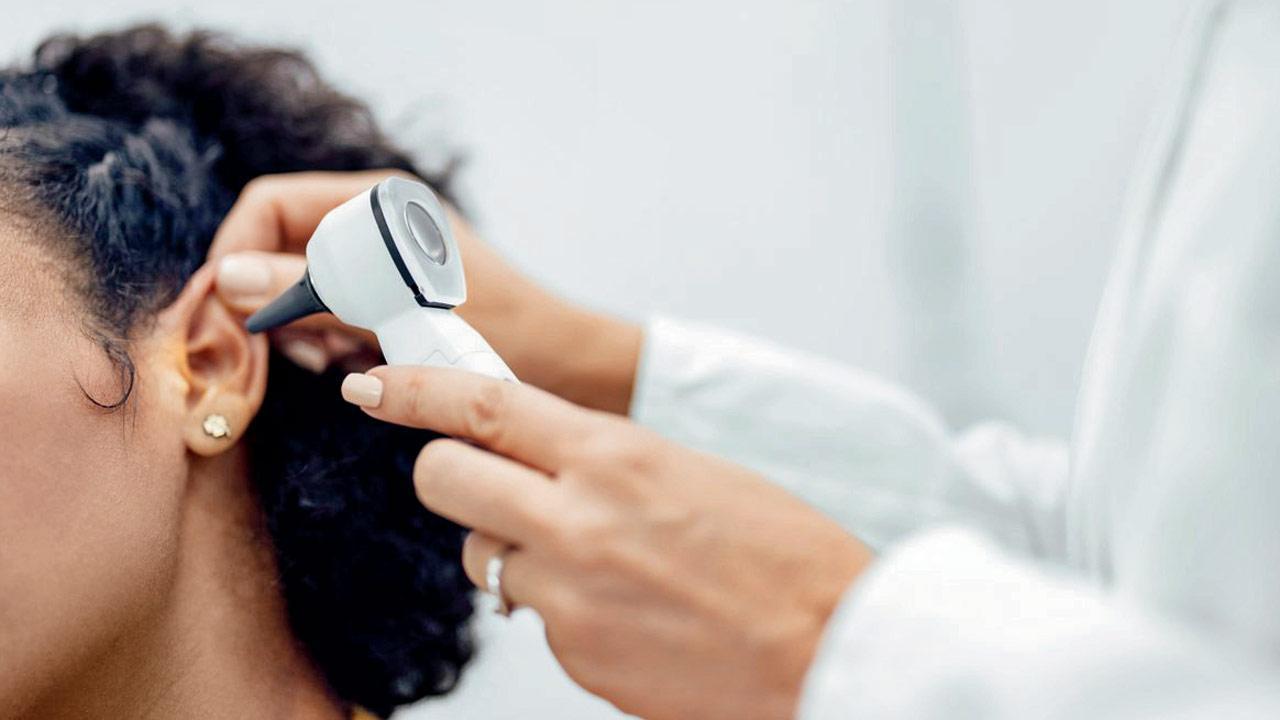Doctors stressed that noise levels above 80 decibels could lead to serious health consequences

Doctors revealed that of the eight patients visiting them, four are senior citizens, and at least two are young adults. Representation Pic
There has been a surge in patients visiting ear, nose, and throat (ENT) specialists during recent festivities, leading to loud noises in every nook and corner, with many raising complaints of tinnitus, while others say they are unable to hear from one ear.
ADVERTISEMENT
Noise-induced hearing loss (NIHL) is commonly seen in senior citizens and people above 25 years of age. This could also lead to loss of hearing in severe cases for those who fail to seek early treatment. Doctors note that of the eight patients visiting them, four of them are senior citizens, and at least two are young adults.
According to ENT specialists, NIHL could lead to difficulty hearing and misunderstanding speech from damage to the hair cells in the inner ear. It may also cause temporary or permanent hearing loss, with the most common symptom being tinnitus—a persistent ringing or buzzing sound.
“I have had 15 patients in the last few days with complaints linked to exposure to high noise levels,” said Dr Prashant Kewale, an ENT specialist in Central Mumbai. “This also happens during Diwali, but we annually see more cases around this time,” he said. The typical treatment for sudden hearing loss includes steroids combined with medications that improve blood flow to help restore nerve function.
Dr Bhavin Shah, an ENT specialist in Ghatkopar, recently treated a police officer stationed at the Versova immersion site who developed sudden partial hearing loss in one ear after prolonged exposure to noise pollution. “The patient had been subjected to constant loud noise. We administered an intratympanic dexamethasone steroid injection, and he is now under observation,” he said. The patient’s family was not available for comment.
The above-mentioned doctors stressed that noise levels above 80 decibels could lead to serious consequences for health. Noise from loudspeakers and instruments during festivities can easily exceed that threshold, they say. “Apart from hearing loss, exposure to high noise levels can increase blood pressure, cause palpitations, and induce anxiety,” Dr Kewale warned.
Routine noise from traffic and construction also adds to the problem outside of festival seasons. “I have been practising since 2013, and it has only gotten worse,” said Dr Shah. “While patient numbers spike during festivals, ongoing urban noise pollution contributes year-round.” The doctors also suggest that long-term exposure to noise could also lead to dementia (a decline in mental function that affects a person's ability to think, remember, and make decisions).
However, at the policy-level, the noise situation around festivities has improved over the past two decades. Sumaira Abdulali, the founder of the Awaaz Foundation, has been advocating against noise pollution for 21 years. “Things have improved significantly,” she said. “There were no time limits or restrictions in the past. Now, DJs are banned in public spaces during festivals, and while it’s not 100 per cent enforced, the rules are mostly followed.”
Still, challenges remain. “Political factors play a role. Celebrations can now continue until midnight, and while the noise at pandals has decreased, even though not at levels that would be ideal, political speeches are often delivered at high decibel levels as well now,” Abdulali added. Even with better policies, police enforcement falls behind, Abdulali noted.
 Subscribe today by clicking the link and stay updated with the latest news!" Click here!
Subscribe today by clicking the link and stay updated with the latest news!" Click here!







